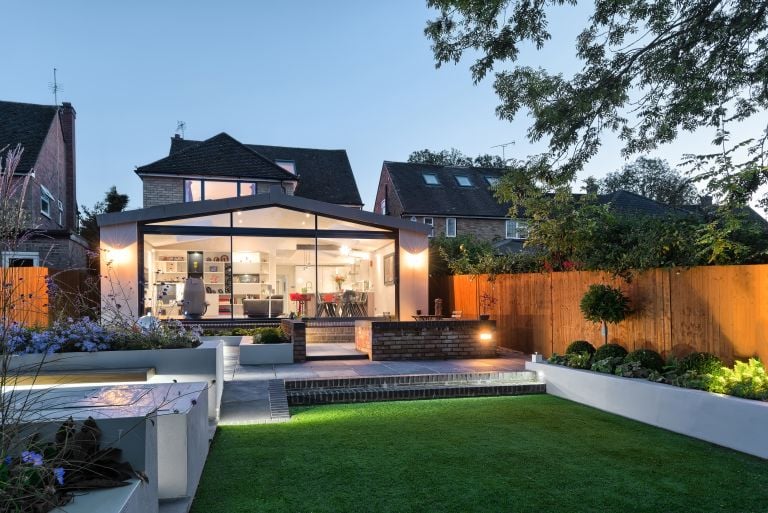Table of Contents
Planning on expanding your home? Many house owners need an extra room or two for multiple purposes. Some need a place to study, work, or just relax, enjoying game and gaming chair both while others could use the extra room for storage. While everyone is eager to start expanding their home, careful planning and execution are a must. In the end, it’s just another great investment, increasing the space in and around the house, giving you plenty of opportunities to rearrange things and make it more comfortable.
The fact is, most of us are interested primarily in calculating the total house extension costs. But, as you read through the post, you will find out there are other important factors to consider as well. So, before you decide on finding contractors for the job, make sure you’ve got everything else covered.
Extension costs
Costs are probably the most important segment of the entire process. In the simplest terms, you should sit down and determine a decent budget for the whole procedure. In the end, you’ll want to see the complete extension, not a semi-finished work covered in plastic sheets, because of a simple miscalculation. So make sure you’ve secured the funds before you start looking for architects.
It’s best to divide the budget into three segments. Part of the budget should be used on hiring architects, contractors, and consultants. Then, use the second portion of your budget to purchase construction materials and if you’ve managed to save up some money, leave it intact. Finally, the room isn’t going to fill itself with objects and fancy decorations. What’s left for you to do is some shopping, be it furniture, arcade machines, pool tables, appliances like washing machines, freezers etc.
Building Regulations
Depending on the type of house extension, there are certain regulations to be followed. You can’t start building things around the house if they don’t comply with the general building regulations. Of course, this doesn’t apply to structures such as tool sheds, outbuildings (garden rooms), and greenhouses. For any other home extension, such as attic conversions, internal restructuring, and creating new rooms in or adjacent to your house, building regulations still apply.
When checking out the building regulations, pay attention to general safety procedures, such as fire safety, ventilation, and structural integrity. Even if you want to knock down a wall on the inside, you’ll still need approval from the officials.

Photo by Ryan Ancill on Unsplash
Hiring an architect
You can probably visualize the new room already, but it would be wise to hire an architect to draw and plan it out for you. They can determine what your general idea is, such as size, design, and purpose. Architects aren’t just picking colors and drawing rooms, but they use their skills to make the area look more appealing and effective. This is why if you lack creativity, you should let someone else suggest what needs to be done, and how big it needs to be because it can save you time and money.
Calculating time
You can always buy more space, but you can never buy back the time lost in creating this project. So, it’s best to set some reasonable deadlines with your contractors and architects, letting them know you want the job done within certain time frames.
To make things more clear, a typical house extension might take more than a few months to complete. For example, your contractor may need a few weeks to get started due to unforeseen circumstances. On the other hand, an architect may take up to a month to complete the initial drawings and present them to the officials for approval. Keep this in mind for when you’re negotiating with every collaborator, or you’ll end up with missed deadlines.

Photo by Mark Potterton on Unsplash
Adding value and quality to the property
When you’re opting for a major step such as this one, note that you’re also adding value and quality to your home. It’s more than obvious that the extension will only increase the value of the property, both in terms of appeal and living space. More importantly, don’t forget to make the new area blend in with the rest of the house.
As we’ve mentioned in the beginning, this is an investment for years to come, as it can be seen from multiple perspectives. Mainly, you will gain more comfort by increasing the size of the property. From a financial aspect, you already know it will add at least $10,000-100,000 to the total property value, taking into consideration the average prices of households throughout the U.S. Finally, you get the personal satisfaction of using it for whatever reason you needed it in the first place.
Build relationships with your neighbors
If you’re a respected member of the community or are helping the neighborhood become a better place to live somehow, your neighbors will remember you. By knowing who you are and what you do for them, you won’t get in trouble. However, if a neighbor isn’t that fond of you, you might get into trouble for building without their permission.
An unhappy neighbor can cause many problems, such as submitting a written objection to the authorities. To make it valid, they can object to literally anything. By cutting any of the old trees in the backyard, they can object to being part of the surroundings. Alternatively, you should know about the “right to light,” which can legally prevent any construction to begin. Every property owner has the right to receive enough light in their house, as long as a neighbor’s recent house renovation isn’t blocking it. So keep in mind – your planned extension shouldn’t be taller than the existing part of the house.
Summary
Don’t underestimate the process of a house extension. There’s much to be done, and it will require much time, money, and energy to make it happen. Remember to remain friendly with your neighbors and avoid conflicts, plan everything beforehand, and leave some money on the side because you never know if anything will come up that needs an extra investment.





